Mr. Nice Guy, Yat goh ho yan (1997)
Directed by: Sammo Hung
Written by: Edward Tang, Fibe Ma
Starring: Gabrielle Fitzpatrick, Jackie Chan, Miki Lee, Richard Norton
AKA YAT GOH YO HON
HONG KONG
AVAILABLE ON BLU-RAY, DVD and DIGITAL
RUNNING TIME: 101 mins/88 mins
REVIEWED BY: Dr Lenera
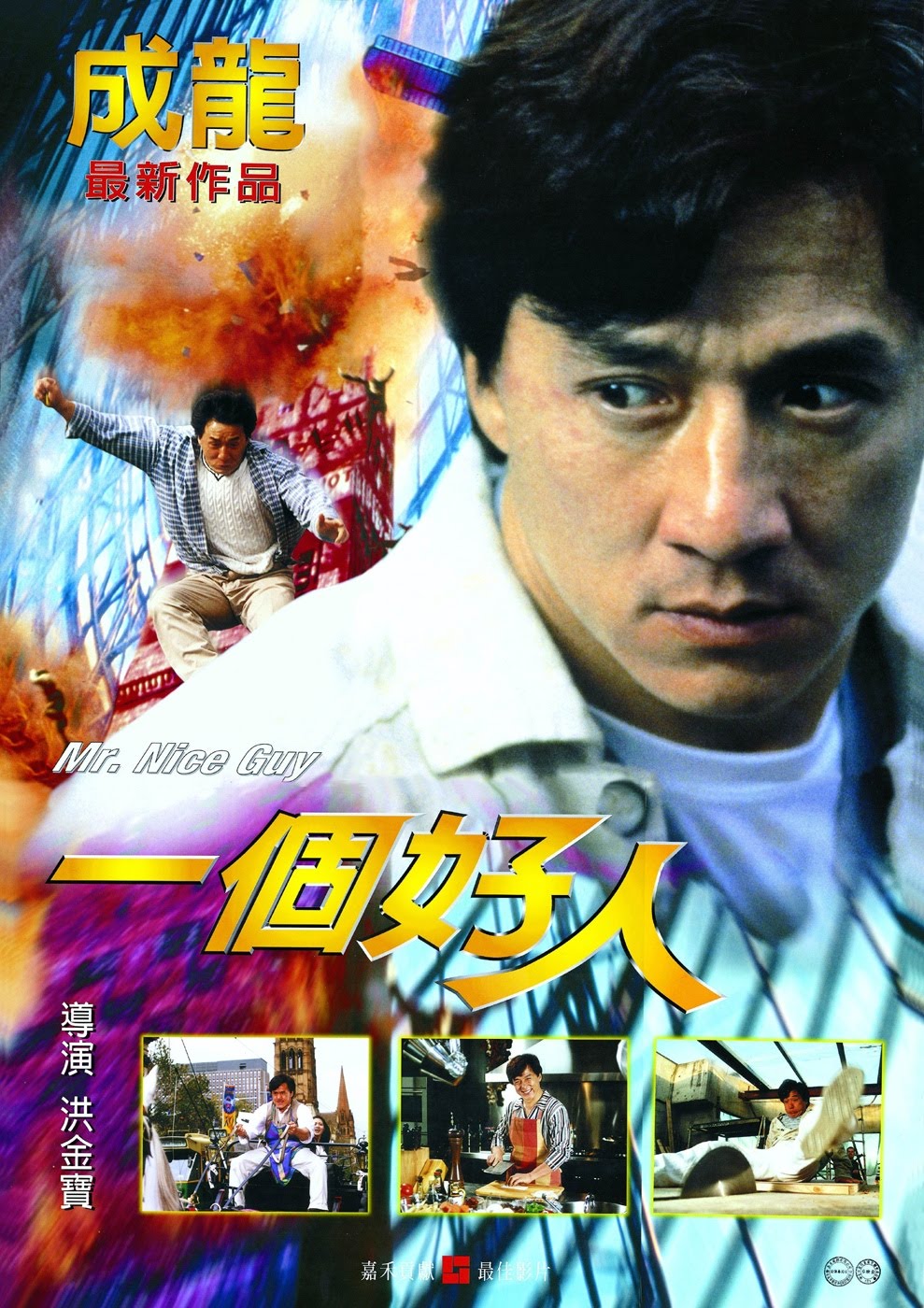
In Melbourne, a cocaine deal between the Italian mob and a street gang called the Demons goes wrong and Giancarlo, the mob boss, kills the Demon’s leader. Bullets start flying and TV journalist Diana catches it on tape. Though her partner is captured, she flees with the tape, which of course contains evidence which, if publicly aired, could bring down the Mob. Chased by gangsters, Diana bumps into mild-mannered TV chef Jackie, who uses his martial arts skills to fight her pursuers and help her escape. Supposed to be giving a warm welcome to his visiting girlfriend Miki, Jackie hopes he has seen the last of Diana, but she accidently switched the tape with a children’s video, meaning that he’s now a target for both the mobsters and the Demons……….. 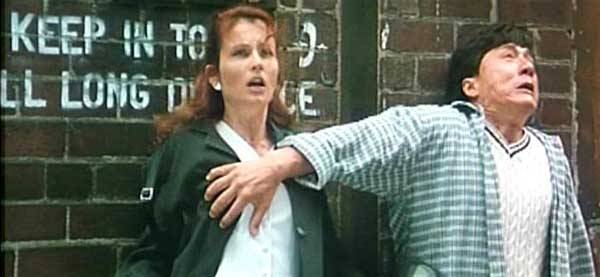
My recent obtaining of the Blu-ray, which contains both the International Cut and the longer Hong Kong cut in its first release outside of Asia, gave me the excuse to do something I do every now and again; revisit an old review and add or change some things – though my view of Mr. Nice Guy hasn’t changed. I still really like the way that, more than perhaps any other Chan film, it’s basically a load of non-stop chasing around and fighting, not so much a series of action set pieces as one very lengthy action set piece. This means that I can almost forgive the film’s glaring problems, especially its stupid plotting [did screenwriters Fibe Ma and Chan’s frequent collaborator Edward Tang get enough time?], awful acting and just plain ineptitude in a few places, which makes it rather sad that it marked the return of Sammo Hung, Chan’s Peking Opera “Big Brother”, and the man who directed some of his strongest movies and fight sequences especially Wheels On Meals, Dragons Forever and Heart Of The Dragon, to Chan’s world, especially after the two had had a falling out and not spoken for severeal years. I wasn’t lying when I said that there were loads of brawls here, but Chan tends to be running away and lacks the aggression and power that Hung would usually give him in the glory days, a sign of how Chan was really the person now in charge of course. Still, watching what seems almost like a two-hour Chan film and skipping the “slow” bits so we’re watching almost constant movement has its own pleasures, sometimes playing like a compendium of bits and pieces from Chan’s earlier movies until something rather original and even awe-inspiring appears.
This was originally going to be the fifth film in the Police Story series. The fourth instalment had gone to Sydney for its final two thirds; this one was to be entirely set in Melbourne, but in a month’s time it was revised to become a stand-alone action film set in the same city. This was because New Line Cinema, who’d had big success distributing Rumble In The Bronx in North America, asked for something similar to that, a film which focused primarily on the action and lost much of the Hong Kong quirkiness. It was Chan’s first film to be scripted and shot in English, and New Line had a dialogue coach on set. Chan hurt his neck when he messed up on a flip during a fight scene, and also broke his nose after tripping over. Therefore the intended duel between Chan and Richard Norton couldn’t happen, so instead we had vehicular spectacle. Unfortunately the huge mining vehicle employed caused so much mess that Chan was told he could never film in that area of again. Some fight footage was curiously cut out; you can see some of it in the end credits blooper reel. It was the usual massive Asian hit though the 13 minutes shorter International Cut failed to do the business. I’d rank it about equal with the original version. The tighter editing of some of the non-fight actions bits in the International Cut is almost neither here nor there, the addition of a dinner scene gives us a nice breather between mayhem, and the new J. Peter Robinson’s beaty score works better than Peter Klam and Clarence Hui’s. However, the toning down of the quite extraordinary [even for a Hung film] amount of violence against women results in some really choppy editing, some rearranging of scenes doesn’t really work, and the removal of two cop scenes muddies further the so-called plot. The Warner Blu-ray actually contains what is comparable to the Japanese version rather than the Hong Kong version, with the retaining of a slightly longer edit of the dinner scene.
The Hong Kong version opens with our main villain being villainous, though this is switched with Chan’s introductory scene, making spaghetti in his TV show in the International Cut, thereby already giving the film a lighter tone. A bikini-clad girl in a pool welcomes Giancarlo home. “You are so beautiful”, he says aa he grabs her throat and holds her underwater. She’s with the Demons, so he order her to be taken so that she’ll become landfill. A meeting between the gangsters and the Demons in a blue-tinged warehouse has him very angry indeed that he apparently has to buy back is own coke; shooting results. Our intrepid journalist manages to escape with this valuable footage, but this footage is very weird indeed. When viewed by others in two occurrences, what they and us see are the film edits from the scene, not what one tape recording from one camera would be witnessed. What a truly stupid slipup. I find it hard to believe that neither Hung or Chan didn’t care about this. Okay, Chan did say that he was doing something wrong if people watching Rumble In The Bronx noticed the mountains behind Toronto, despite the supposed New York setting, while he was doing his thing, but this seems to be a bigger issue seeing as it’s such an important plot point. Anyway, a fleeing Diana bumps into Jackie who beats up a few baddies for her, and the first action sequence commences, and, while the actual martial arts is relatively brief, we get a great melding of thrills and gags, either the best or the worst of the latter being when Jackie realises that his hand is on one of Diana’s breasts. The action goes down some alleys and back streets, then a biker wedding where Chan tries to escape with a large Donley Kong balloon before it’s shot down by bullets. We could have probably done without comments like “You’re fast” and “How’d he do that” as Chan shows what he can do. In his car he saves Diana again, and she kisses him with the words “you’re a nice guy Jackie” – so there’s our title!
Jackie seems to live with his assistants Baggio and Lakiesha who has a thing for Jackie, something stated in lousy writing and performing – oh dear god, there’s a hell of a lot of that in this film. His policeman friend and Baggio’s son Romeo comes over with his kids, and the kids view the tape. Meanwhile the gangsters ambush Diana at her house and kidnap her when they realise that the tapes were switched and Jackie has the tape they want, but Diana escapes after creating a distraction in front of a crowd in a truly awkward and poorly performed scene. Jackie’s girlfriend Miki comes to stay, but it’s the worst timing ever, because both Giancarlo’s men and the Demons are soon to come visiting, though of course they’ll be attacking each other as much as they will Jackie and company. Sometimes Jackie is accompanied by all three women a la Armour Of God 2: Operation Condor, only here they’re Japanese, Australian and African-Australian. You just know that Miki is going to be kidnapped at some point, and that Jackie will ignore advice to go and save her. This is a film that seems to be on permanent fast forward, with no sooner than one action sequence ending than another beginning, something that might be just as well seeing as when people stop to talk it’s sometimes rather painful. Try and count how many times “Where’s the tape”? is said near the beginning, or cringe at the dialogue between the Demons as they plan to get the tape back. And did Jackie’s name need to be mentioned as often as it is? This really is basically a film that has diametrically opposed features, but the fact that it’s almost on permanent fast forward really does help, with no sooner than one action sequence ending than another beginning.
After the lengthy afore-mentioned earlier set piece, we then have Giancarlo’s men and the Demons both converging on a studio in a shopping mall where Jackie is doing a demonstration. We can’t help but think of Police Story as Chan clambers around and battles a few villains, but then the sequence evolves into Chan fighting baddies jumping on a horse-drawn cart driven by Miki. In the only bit where Chan’s old force and power is allowed to return, Chan ducks and dives a la Police Story 2 and smashes his opponents into the hanging signs, before leaping to save Miki before she’s killed by the crashing cart in exaggerated heroic fashion. It’s pretty thrilling. Next Chan and the three women have to flee across a beam between two apartment blocks from hand grenade-throwing Demons. Then Jackie has to fight two bad guys in the hugely restricted space of the back of a van, before jumping across a lake on to a crane. It’s done in two cuts, but is still impressive. In terms of martial arts choreography the best scene is an encounter in a construction site which is archetypal Chan; exciting, dangerous and funny,with all the features of the environment being used, from pallets to a cement mixer to a chainsaw a la The Protector, plus some great comic gags such as some silent movie-type stuff with doors. As sometimes happens, Chan’s character loses this fight. He then has to battle Giancarlo while tied up and pulled around by his hoods; seeing Jackie turn the table on his opponent is pretty rousing even though the fight could have been longer. The mining vehicle climax is pretty spectacular; of course Chan refuses to just climb up the outside ladder to get into the moving vehicle and hangs on to one of the wheels while it turns round instead. But of course sometimes the small gags stick out. At one point, Jackie is holding a gun he knows is not loaded. He goes round a corner, and is face to face with a bad guy, also with a gun. The guy points the gun at Jackie. Jackie hands his own gun to the guy. The guy looks at the gun he’s been given, and Jackie simply takes the other gun, as if in trade. Then the guy shoots Jackie – but with the unloaded gun.
The female characters are repeatedly pushed, punched and kicked, but the humour, which is mixed far more with the action than in large comedic set pieces common to many of Chan’s older films, generally comes off, while Hung does direct the action very well, sometimes adding his favourite slight slow motion effect but not much of it, while the occasional aerial shot is welcome. Chan exudes his usual natural charm and displays his usual incredible timing, whether it be for action or getting a laugh. At 42, he displays almost as much agility as has had when he was 32, though he’s over twice the age of Miki Lee, who plays – um – Miki. Norton as Giancarlo, wearing really thick makeup designed [I presume] to make him look Italian [despite his Australian accent] but which actually makes him look transexual, is hilariously hammy as he bosses his people around, expresses anger at having to buy back his own cocaine, and hits a minion repeatedly with his own tie. He’s terrific fun to watch even it may not all be for the right reasons. The majority of the rest of the actingis off low quality and is at times very poor indeed, almost giving the impression that many of the cast members were pulled off the street. Vince Poletto as Romeo might be the worst. Hung has a funny cameo as an ill-fated cyclist. Supposedly Golden Harvest didn’t want Hung to be in the movie because he was box office poison at the time, but at least Chan was able to give him a very small part. In a way criticising a film like Mr. Nice Guy is pointless; its main ambition is to just throw you a ton of great action, to make you grin, gasp and hang on to the edge of your seat – and in that it succeeds very well. One just wishes that a bit more – actually scratch that, a lot more – effort had been made in other departments.
Rating: 










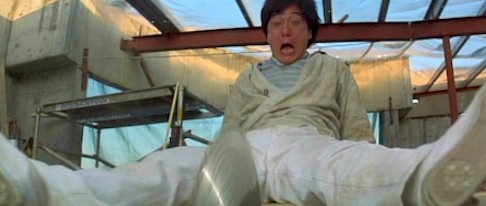

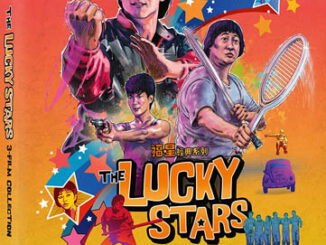
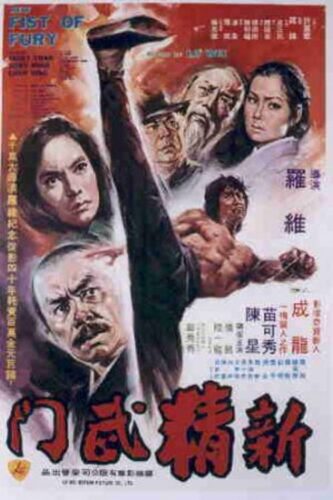
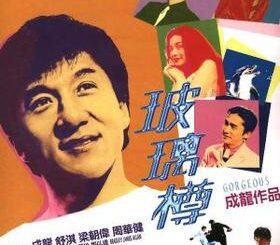
Be the first to comment